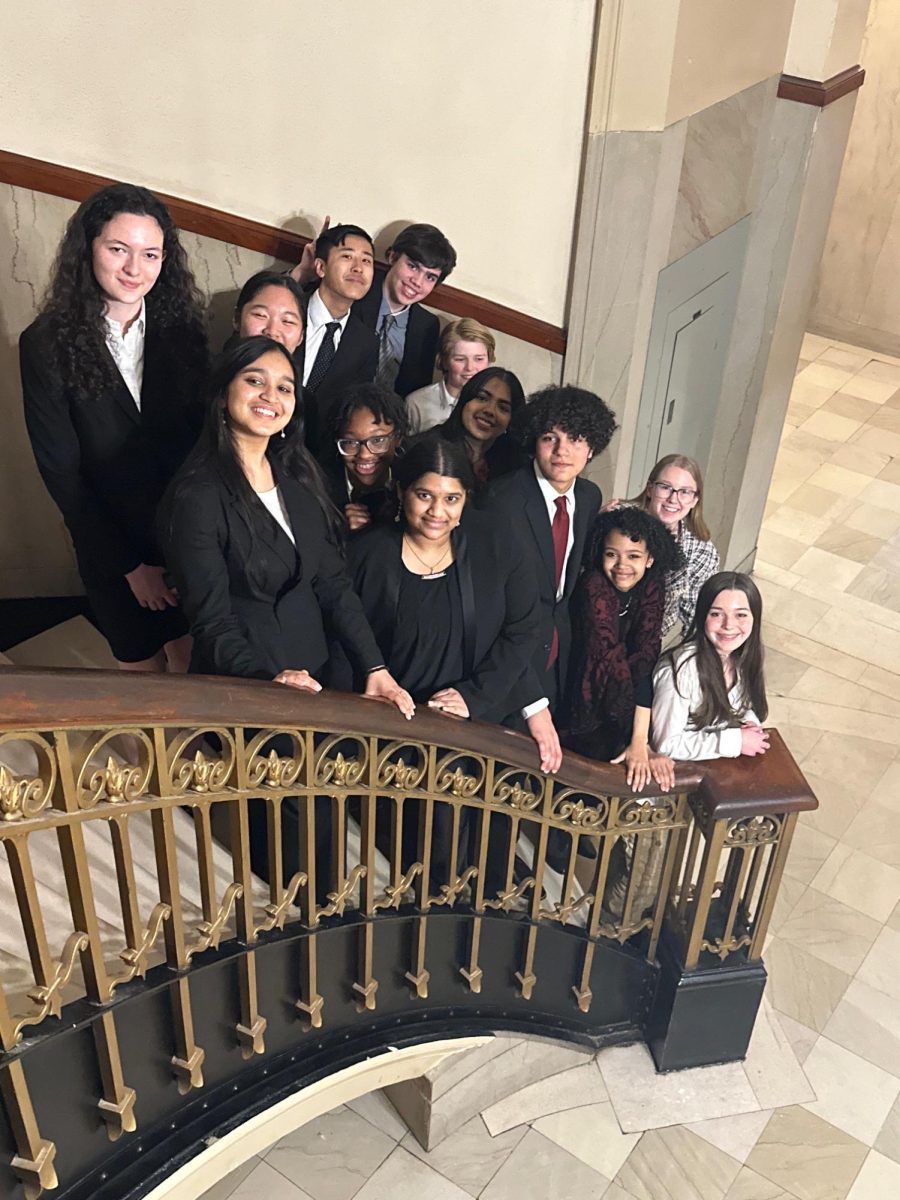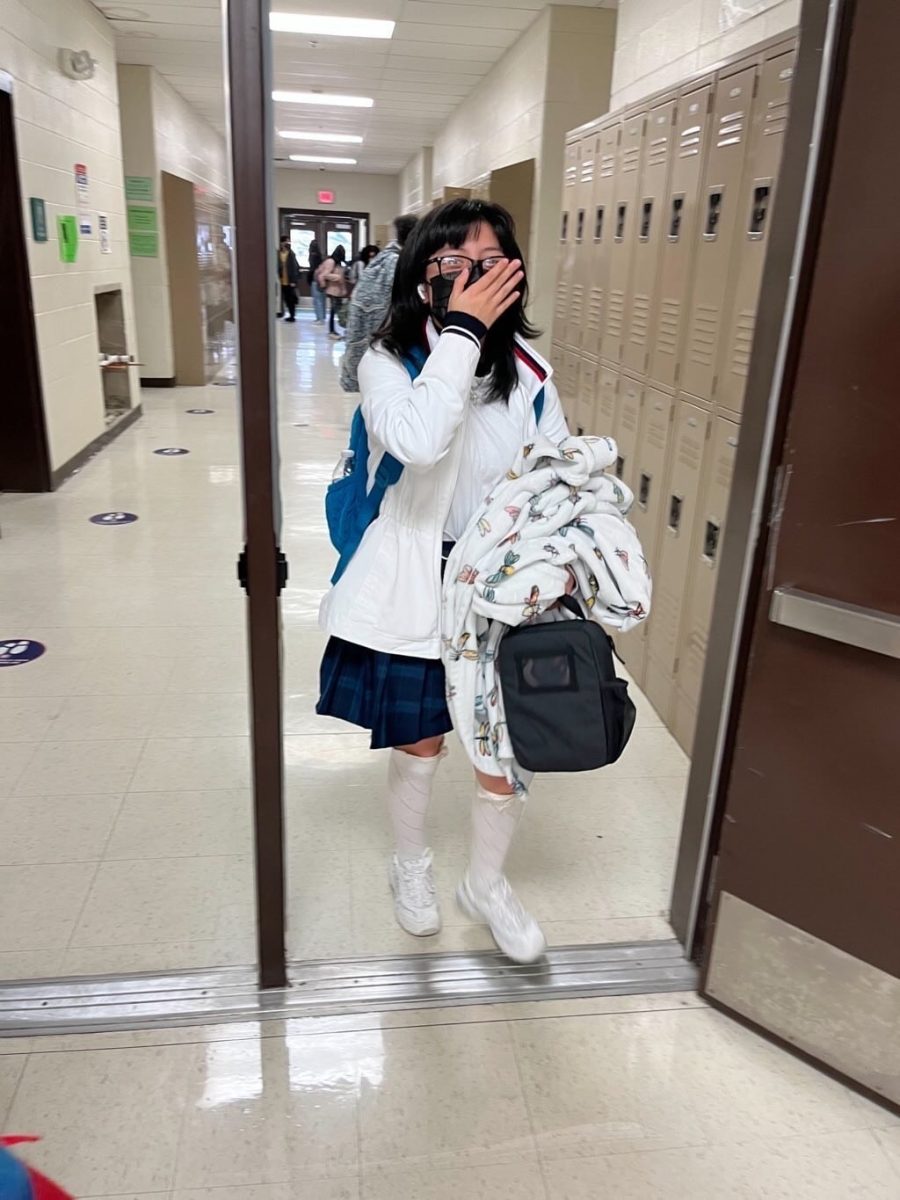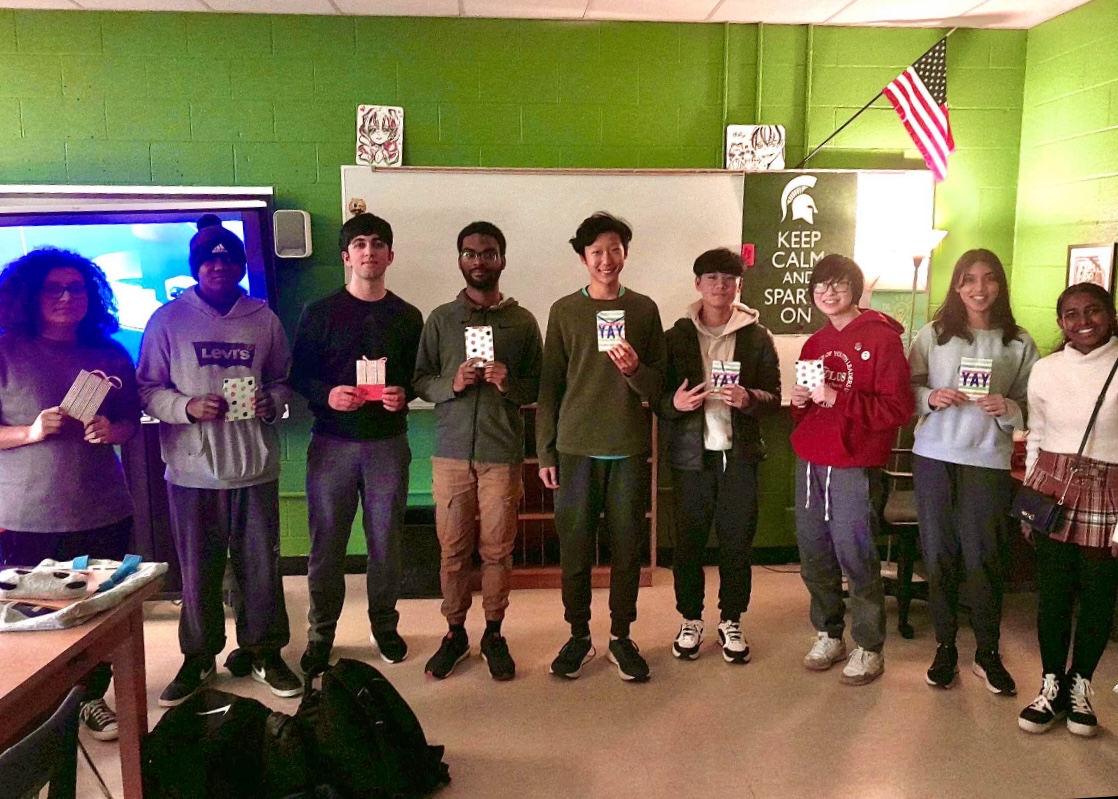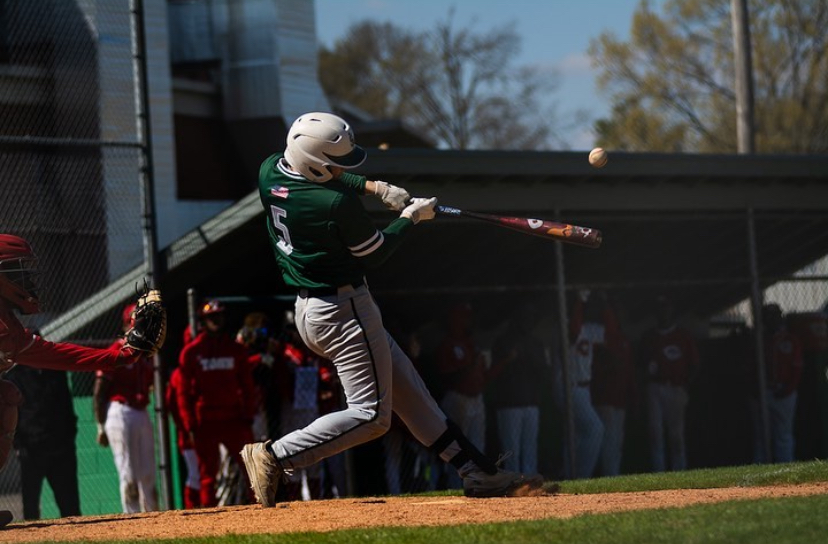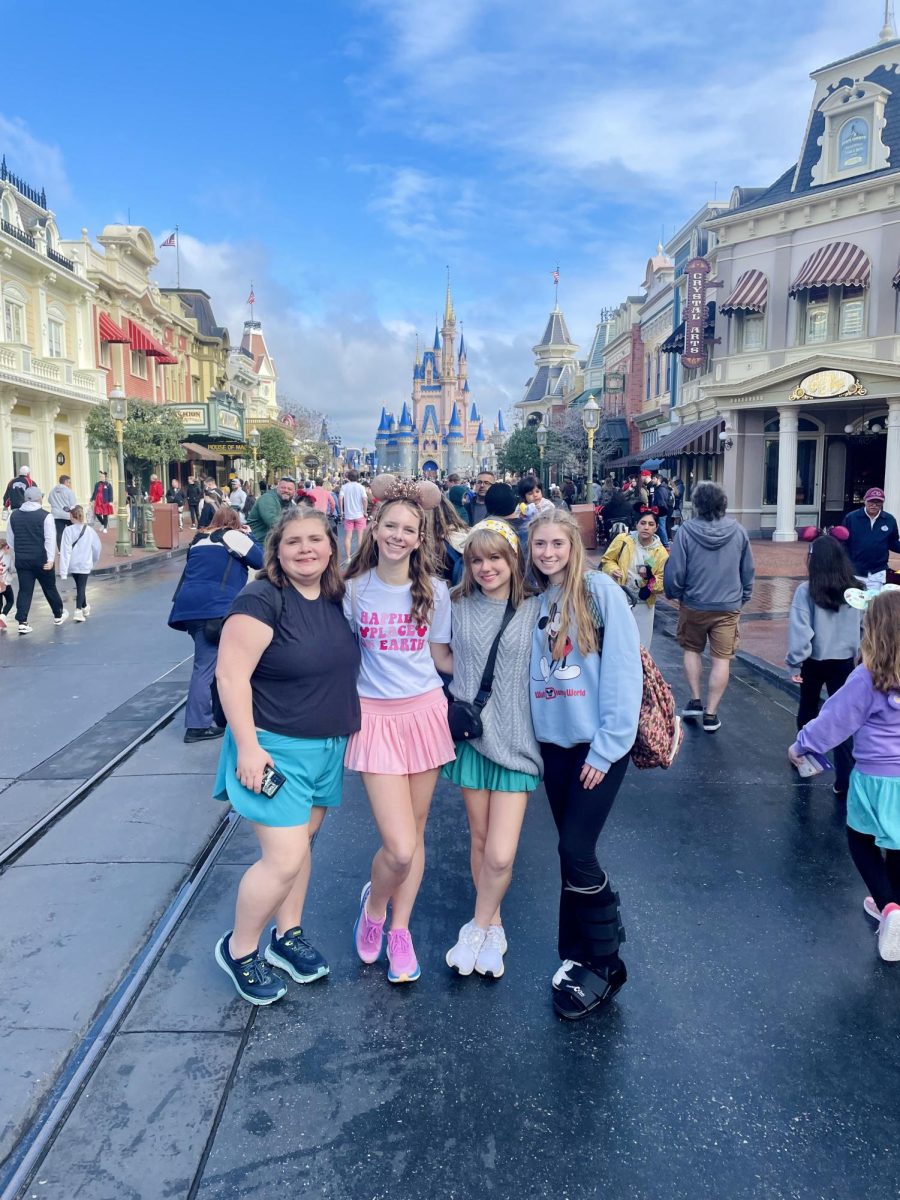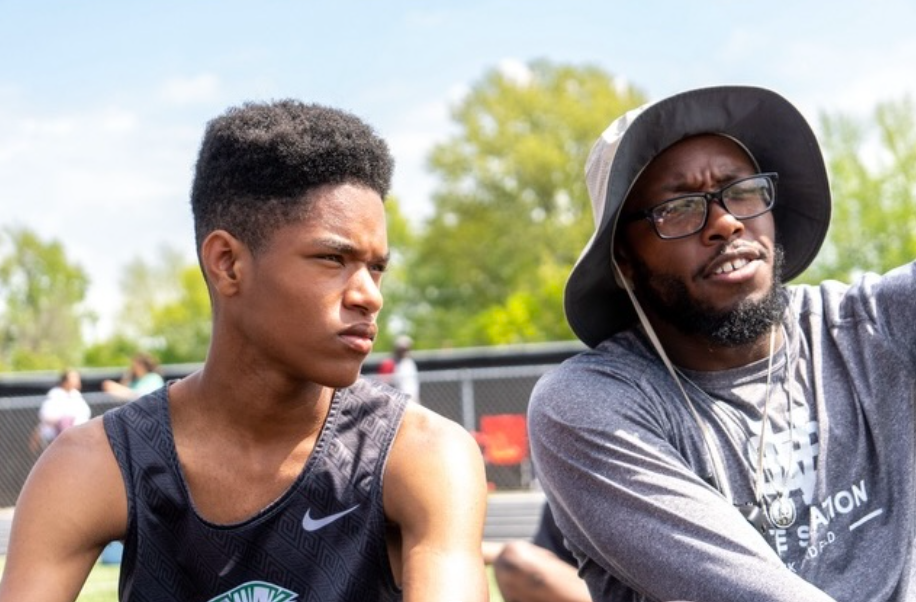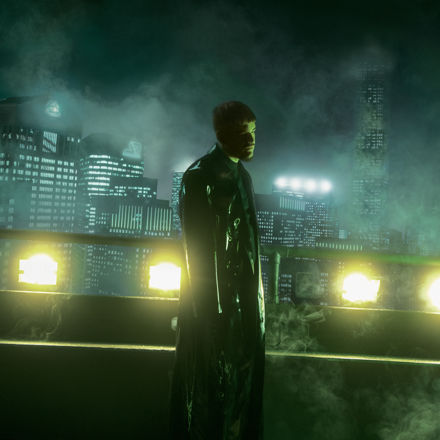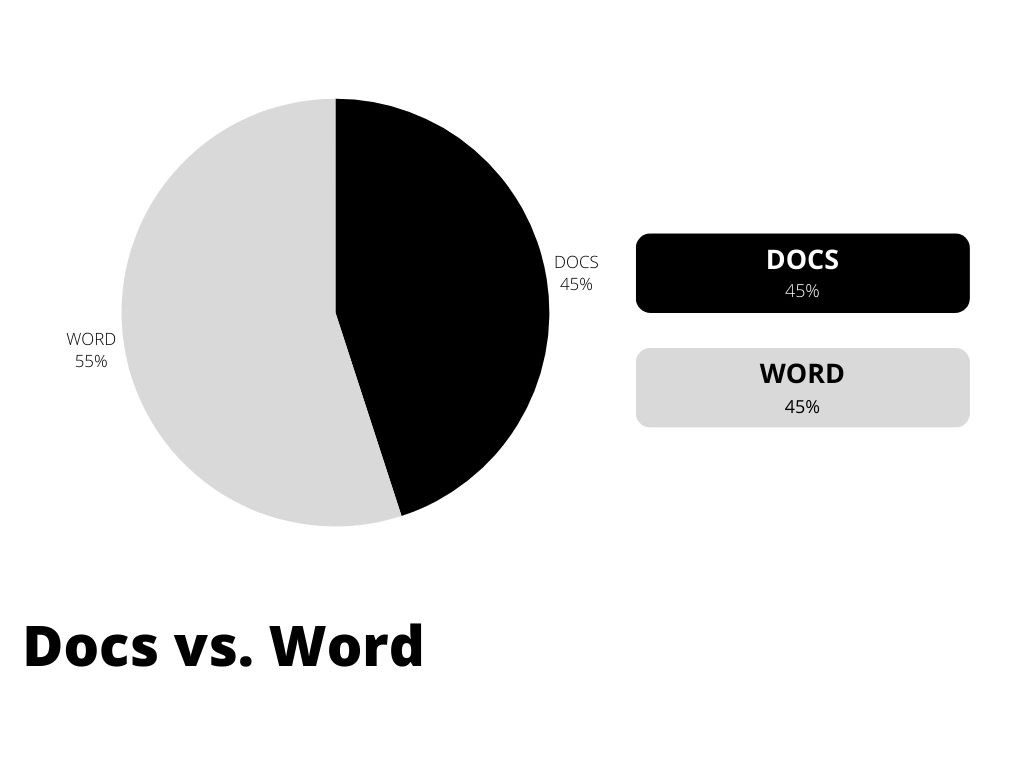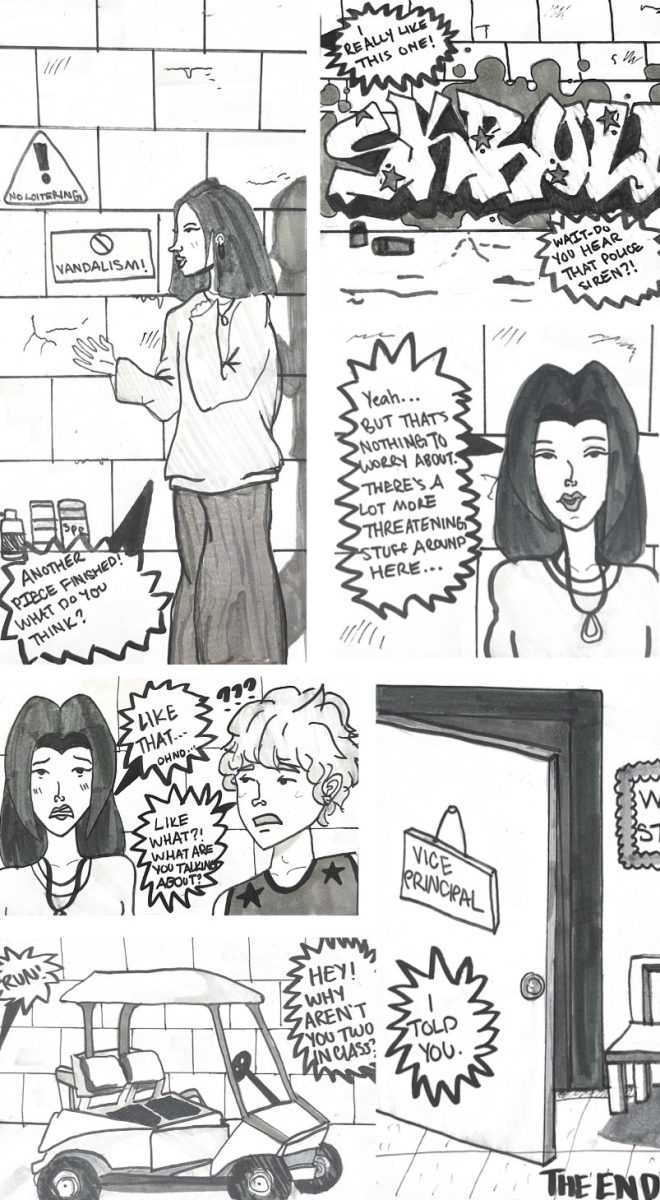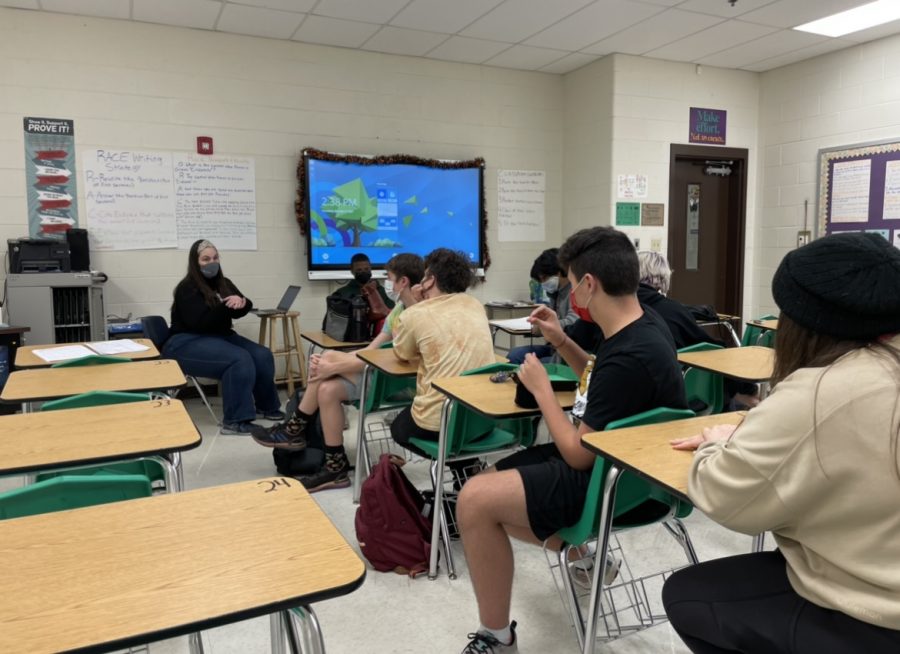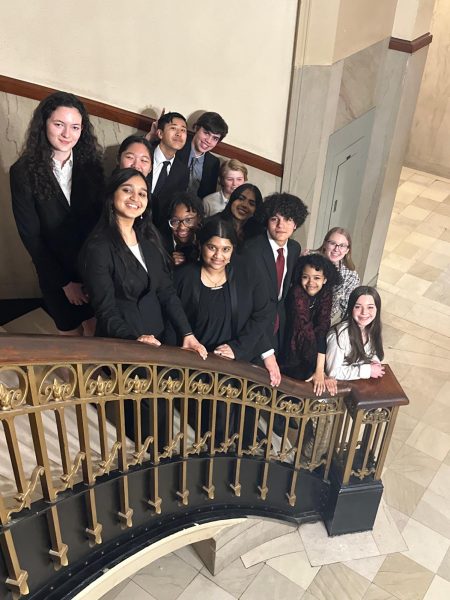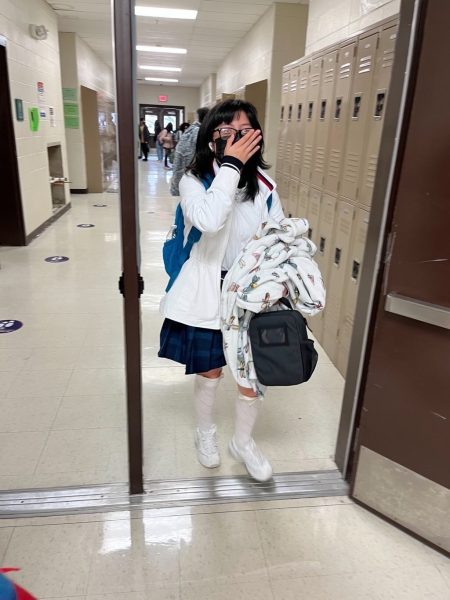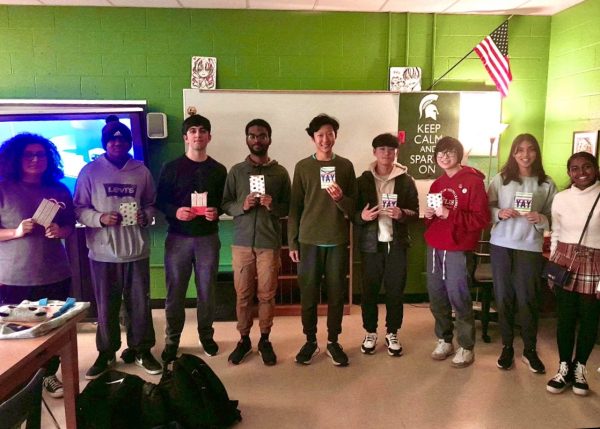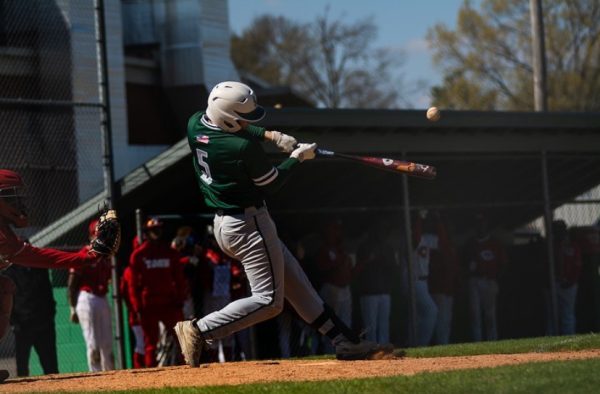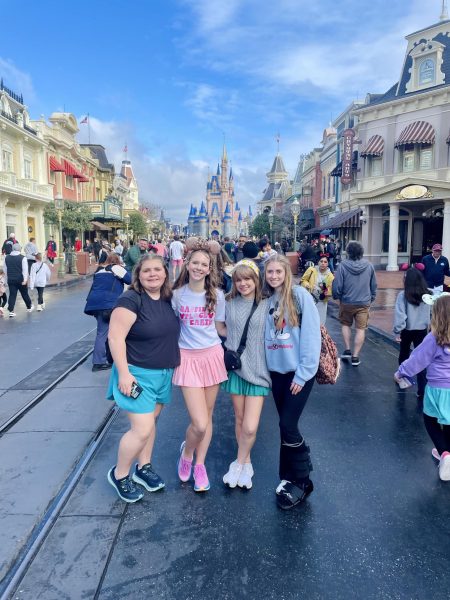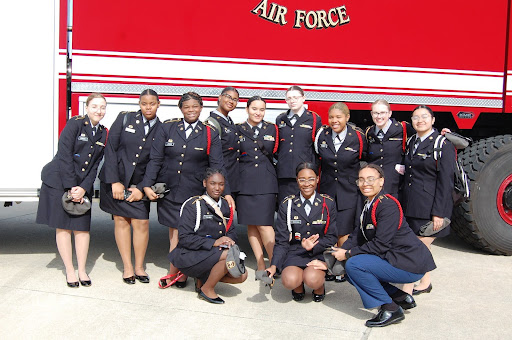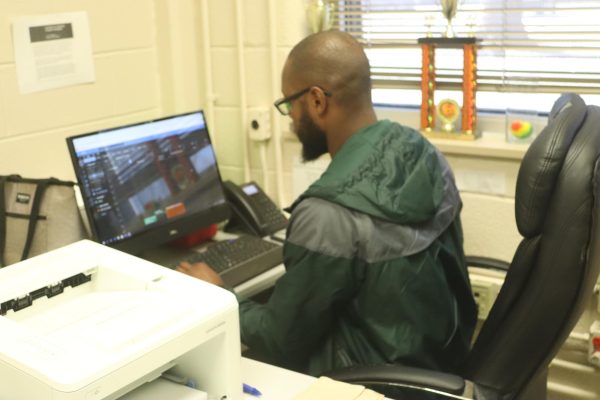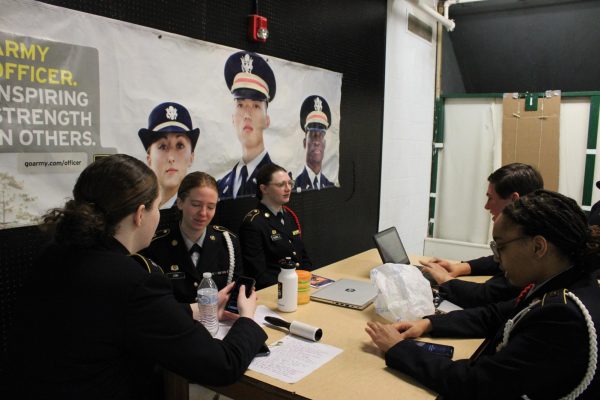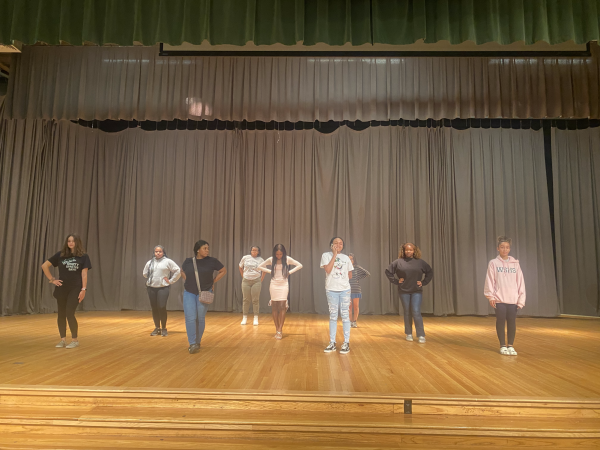Beyond the gameboard and students’ imaginations, the Dungeons & Dragons club resurges
In room F128, the club members sit down listening to Ellen Dunn, the club sponsor, break the news that Samuel Naids could no longer be a sponsor. Teacher Luis Herrera and Dunn, have made adjustments in order for the club to continue.
Rolling dice and role playing. It sounds confusing, whimsical, even childish, but maybe that’s the beauty of Dungeons & Dragons (D&D); it’s an outlet for all of the untapped youthful creativity adults are supposed to have given up.
“You know, as a kid you often have your imaginary friend or like you’re playing ‘the floor is lava,’ and you’re imagining all these things in the world,” Simon Schoenberger (10) said. “That’s what D&D is.”
Schoenberger, an experienced player, and a few of his friends noticed last year that the school lacked a Dungeons & Dragons club and took the initiative to change that.
“I asked around and never heard anything about a D&D club … so we all decided we would get together and try to start that club,” Schoenberg said. “We got back to school and started trying to get things together, and then we realized there had already been a club that existed before everything went virtual.”
They worked with the previous club members from before the year before virtual school to get the club up and running. After reviving the club, a flexible structure formed.
“The club has a loose central leadership called the council. I am a member, and our role is primarily organization. We don’t regulate the game rules for any particular group,” Morgan Goldstein (12) said. “Outside of club-wide announcements and such, most planning is done by the Dungeon Masters for their individual groups.”
Although the student leadership is strong, the sponsorship has been rocky with the loss of a sponsor, Samuel Naids, who left the school due to personal complications. Members of the club continue to receive ample support from teachers Ellen Dunn and Luis Herrera.
“I think that when I got the news of that it was a little worrying, but Mrs. Dunn seems to have everything under control, and Mr. Herrera … he’s offered to let us use his room, so we have more than enough space for the club,” Schoenberger said. “I think it is all going pretty smoothly. I think we just had a couple of hiccups in the beginning, and I’m not too worried.”
Despite averting one crisis, the club also faces the challenge of student involvement because new members feel daunted by the introduction of the game.
“I think outsiders are very confused about it, maybe a little intimidated even, because it’s just a huge scope of things,” Schoenberger said. “This whole completely fake world is almost exclusively being described to you through words and thoughts, and that’s just all in your head, and that’s just hard for some people to wrap their head around. It’s more about bonding with the people in your group than what you achieve within a world.”
Opening people up to the idea of Dungeons & Dragons can be challenging especially because of the stigmas that have always hovered around the game. Starting in 1974, D&D was the first role-playing game. Although the game had over 20 million players, when a few players who suffered from mental illness committed suicide, the game was linked to devil worship. Nowadays, the game falls into a not quite as harsh category: “nerd culture.”
“If you are really excited about something and you know a lot about this pop culture topic, you by some definition are a nerd, and some people are nerds even if they do not realize,” Schoenberger said. “[Nerd] is a word that has a lot more negative connotation, or if it did, then it really should because it just means you are really interested in something and know a lot about it.”
Being in the digital age, it is outstanding that a board game has such a lasting effect. Without the presence of the game and its players in the media today, it would slowly come to a halt.
“It is on the upswing. I think for a while there was a bit of decline in the fandom and people playing it, but now, a lot more people are getting into it and playing it outside of schools,” Schoenberger said. “I absolutely think that if not for ‘Stranger Things,’ D&D would probably still be on the very heavy decline.”
The toxic “nerd” stereotype seems to be fading in modern society, making things like Dungeons & Dragons more acceptable and more mainstream.
“I don’t think nerd culture is fading,” Goldstein said. “Rather, it’s becoming more and more normalized. What was once nerd culture is now just modern culture.”
Despite what outsiders may think, the game is successful in unifying its players through imagination and teamwork, and the possibilities are only limited by what the players believe
“The great thing about D&D is that you’re not too limited by the rules, and you can play the game differently depending on what you enjoy,” Goldstein said. “I believe everyone can find something they love in this game, even if at first it appears too nerdy.”
Your donation will support the student journalists of White Station High School. Your contribution will allow us to purchase equipment and cover our annual website hosting costs.
